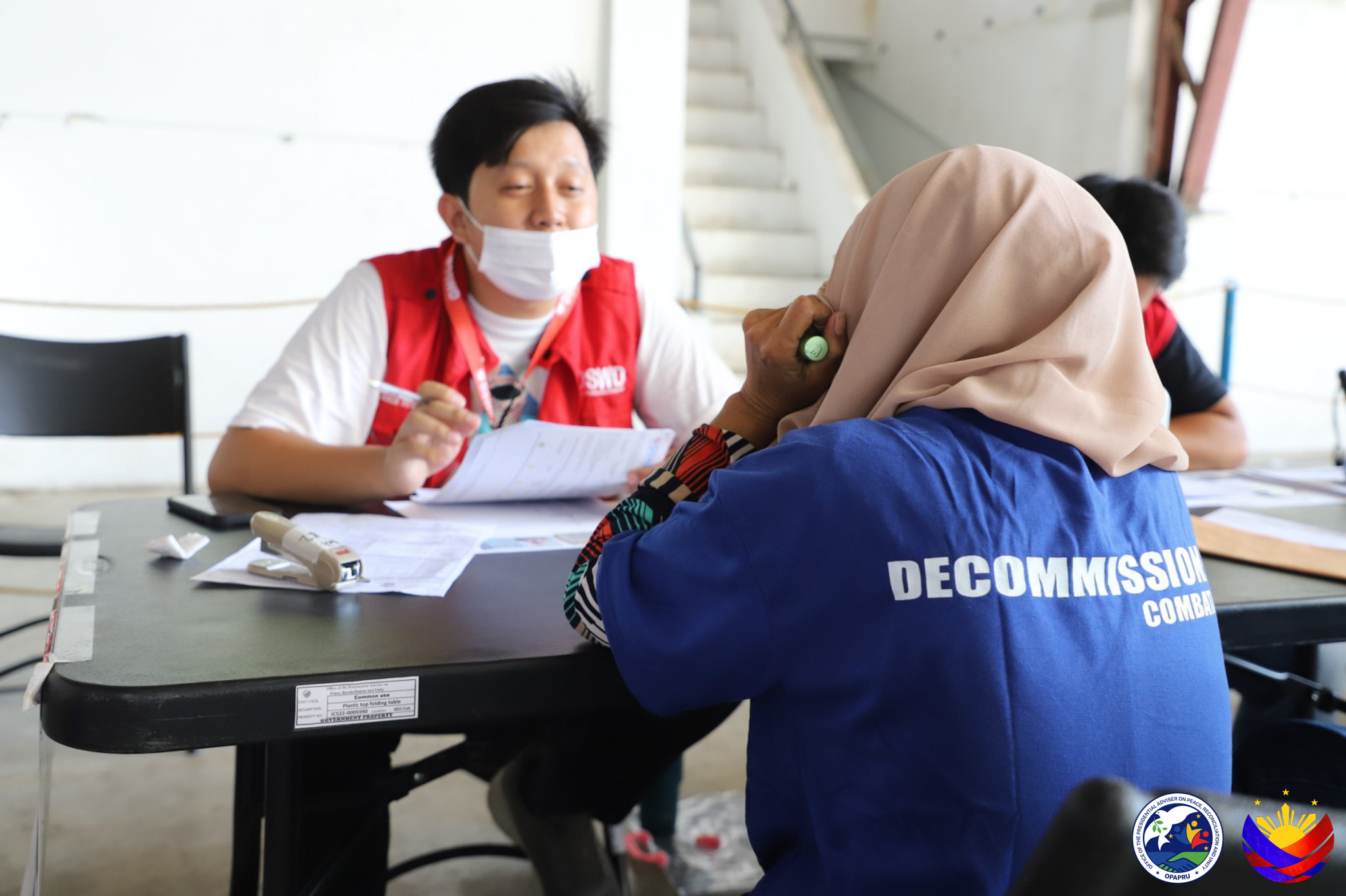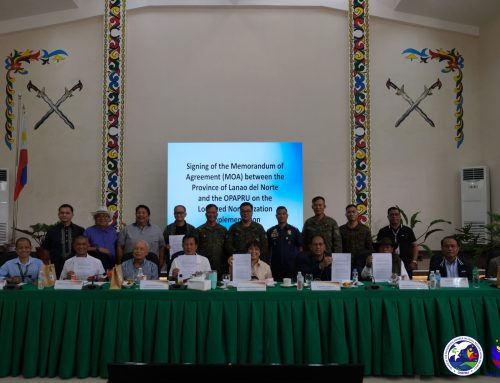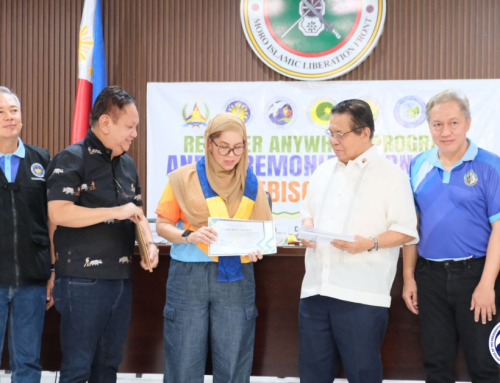SULTAN KUDARAT, MAGUINDANAO DEL NORTE — The Government of the Philippines (GPH) and Moro Islamic Liberation Front (MILF) are determined to fulfill the commitments they have made under the Comprehensive Agreement on the Bangsamoro (CAB), which includes the decommissioning of MILF combatants.
This, as the completion of the third phase of the decommissioning process of MILF members resumed on Thursday, August 3, here at the Old Provincial Capitol.
The decommissioning of the 1,301 MILF combatants under Phase 3, which started today, shall conclude on August 10.
Decommissioning is among the key provisions of the Annex on Normalization under the Comprehensive Agreement on the Bangsamoro (CAB), the landmark peace agreement signed between the government of the Philippines (GPH) and the MILF signed in 2014.
This process aims to help former combatants make the successful transition to mainstream society as peaceful and productive civilians, and transform their areas into progressive and resilient communities.
More “focus” on accelerating the implementation
According to Special Assistant to the President, Secretary Antonio Ernesto Lagdameo, the Marcos administration shall not waver in carrying out its commitments under the CAB as it continues to bring “durable peace and development in the Bangsamoro.”
“The completion of the third phase signifies the strong partnership of the government and MILF to pursue a singular vision of transforming the Bangsamoro conflict, reflecting the President’s vision to build a Bangsamoro that is self-governing, progressive and effective,” Lagdameo said.
He said the completion of the decommissioning of former MILF fighters and their weapons is a testament of the Marcos administration’s desire to push forward and sustain the gains of the Bangsamoro peace process.
A continuing peace journey
Bangsamoro Transition Authority Chief Minister Ahod Ebrahim described the decommissioning process as a “significant component of the Normalization track under the Comprehensive Agreement on the Bangsamoro” as “the MILF only aspires [for] equal opportunities and access for growth and development for the Bangsamoro people and its homeland.”
“For some, the process of decommissioning might be slow, but may I remind you all that this process takes some time because we are not only transforming the individual lives of the combatants and making them productive members of our society, but even so importantly, transforming all communities across the BARMM to become peaceful and progressive,” Ebrahim said.
For MILF Implementing Chair, Mohaqher Iqbal, the completion of the decommissioning process is a symbol of the “continuous effort” of the MILF to complete their journey towards genuine peace.
“There will always be challenges and it requires us to change, adapt to evolving circumstances to create a brighter future for everyone. Let us approach this decommissioning with gratitude for the past, a resolve to complete the normalization [process], and the determination to continually strive for progress no matter what happens,” Iqbal said
Decommissioning: A joint effort
“The joint efforts for the completion of this third phase of decommissioning is a testament of the parties’ sincerity and untiring commitment for lasting peace and sustainable development that is rooted on the aspiration for the fulfillment of real and effective autonomy for the Bangsamoro people,” noted Türkish Ambassador Mehmet Suat Akgün, who also serves as chairman of the Independent Decommissioning Body.
Cesar Yano, chairman of the Government Implementing Panel, described the decommissioning process as a “thank you” and “appeal” session to all peace stakeholders.
“Sa aming mga kapatid mula sa MILF na pawang nagmula sa Lanao del Sur, magkakasama na tayong tumatahak sa landas ng kapayapaan. Humihingi rin kami ng inyong pang-uunawa sa ating mga kinakaharap na hamon,” he said.
Yano stressed that the key in the successful implementation of the Normalization Program is the synergy between the national government and the MILF as the Bangsamoro peace process remains “a work in progress.”
“Makakaasa kayo na ang aming suporta tungo sa tunay na pagbabago at kapayapaan sa Bangsamoro,” he added.
‘Jointness’ is the key
Meanwhile, Presidential Adviser on Peace, Reconciliation and Unity, Secretary Carlito Galvez emphasized that there is a need to “focus on accelerating the implementation of the Normalization Program’s various aspects which include security, socio-economic development, confidence-building and transitional justice, and reconciliation.”
“Crucial to realizing this goal are the joint peace mechanisms such as the GPH-MILF peace Implementing panels and the intergovernmental relations body, which are helping the national and Bangsamoro governments address challenges in the implementation of the Normalization Program, and ensure that all its components are delivered in the best way possible,” Galvez said.
“As we know, peace is not just the absence of war or armed conflict. Most importantly, it is establishing – and sustaining – the conditions where long-lasting peace can firmly take root and flourish. and the key to achieving this vision is our collective efforts in moving forward the Normalization Program and ensuring that it will have a greater impact on the lives of our decommissioned combatants and their families,” he added.
Phase three of the decommissioning process began last September 2022. By the end of the third phase of decommissioning, 26,145 MILF combatants and 4,625 of their weapons would have been decommissioned. ###



















































